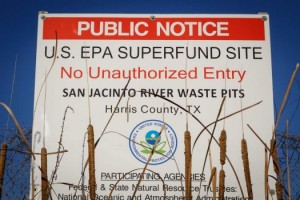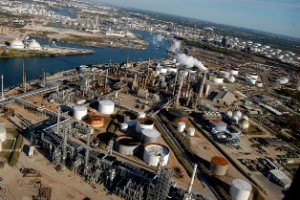The following story on testimony provided to the Texas House Energy Resources Committee about the threat the proposed Tar Sands pipeline poses for the state was reprinted with the permission of the Texas Energy Report.
House Energy Resources Committee Chairman Jim Keffer on Tuesday promised environmental advocates warning of dangers posed by pipelines carrying Canadian tar sands – especially under outdated Texas regulations – that his committee will do its “due diligence’ on the issue.
“You have certainly helped me in things I didn’t know. I want to assure you this committee is going to take everything you said very seriously with the utmost respect it deserves,” Keffer (R-Eastland) said during a day-long hearing on Texas energy and regulations governing it.
Comparing pipeline safety and transparency to his landmark legislation on public disclosure of hydraulic fracturing chemicals, Keffer said he is committed to ensuring “we disclose everything we can to really help the industry going forward.
“We will certainly do it with all due diligence and make sure it is done right,” he added.
He lamented that no one from the pipeline industry attended the hearing to answer questions raised in detail about the safety of pipelines carrying tar sands, also known as oil sands, and commonly referred to as diluted bitumen when in transport.
Julia Trigg Crawford, a family farmer battling TransCanada Corp.’s use of eminent domain to condemn easements on her farm for the controversial Keystone XL Pipeline, testified that diluted bitumen is not akin to heavy Venezuelan crude, as many in the industry insist. (Texas Railroad Commissioner Barry Smitherman also made the comparison earlier in the hearing.)
“Please don’t allow our land to be taken and then endanger it by allowing old standards to be used for something that is an entirely new product that’s going to come across Texas soil. One does not have to pull back many layers to discover that Canadian tar sands are not your mother’s crude oil,” Crawford told the committee.
Noting that she’s learned TransCanada could begin pipeline construction on her land as early as August, Crawford said state officials have an obligation to ensure the “highest and most stringent” pipeline construction regulations are in place when transporting diluted bitumen.
She underlined that her family is fighting TransCanada’s use of eminent domain law to condemn easements on her land, claiming it is a common carrier. Diluted bitumen is not one of seven products listed in the state’s natural resources code that fall under current pipeline regulations, she pointed out.
The Crawford family’s fight against TransCanada will be aired next at a hearing July 18 in the Lamar County Court of Law with Judge Bill Harris presiding, she said. The family will argue the company cannot claim common carrier status in order to employ eminent domain. It also has raised legal issues regarding Native American artifacts that could be disturbed by the proposed pipeline construction route.
“The proposed pipeline that’s going to cross my land will transport Canadian tar sands,” she said. “This product has never come across our soil before. Our current state regulations have never had to address this specific product,” Crawford said, adding officials need to study ample existing data to prevent a repeat of a tar sands catastrophe in Michigan’s Kalamazoo River. “We really don’t know what we’re up against with this product. I don’t think we should use our Texas lands and resources as guinea pigs.”
Trevor Lovell, environmental program coordinator of Public Citizen’s Texas office, told the committee that he coauthored an op-ed in the Dallas Morning News warning about Enbridge Inc.’s repurposing of the 36-year-old Seaway Pipeline to carry a “poisonous mix of chemicals and tar sands bitumen up to 20 times more toxic than traditional crude.” The pipeline crosses three major water sources for the Dallas-Fort Worth area.
The articl,e co-written by Public Citizen-Texas Executive Director, Tom “Smitty” Smith, raised several concerns: tar sands are solid at ambient temperatures, far more acidic than crude oil, and chemical diluents must be added to move them through a pipeline. Yet companies like Enbridge have refused to disclose the chemical mixes, calling them proprietary information.
They added that data from tar sands pipeline spills show the blend is heavy in benzene at toxic levels and other chemicals that are “far more deadly” than contents in ordinary crude oil pipelines.
While a chemical engineer formerly employed at Mobil responded that he agreed with the op-ed points on dangers posed by the Seaway pipeline conversion, Lovell said, a dueling op-ed submitted by an Enbridge executive did not address even one of the 10 key points Public Citizen had made.
Instead, it attacked the two authors, accusing them of distortion and misinformation. It cited statistics showing that no tar sands pipelines have ruptured due to corrosion, a point Lovell said the two did not assert.
After the hearing, Lovell said he felt “pretty good” about Keffer’s pledge to investigate the subject further to ensure safety and continued economic contributions from oil and gas activities in the state.
“It was very encouraging,” Lovell told Texas Energy Report. “I think that Keffer’s done a lot of leadership on that committee. He didn’t make any statements he can’t back up. He framed it in the terms he’s comfortable with, which is protecting the industry from itself, so to speak.
“At the end of the day,” he added, “what we care about is safety on these pipelines.”
By Polly Ross Hughes














